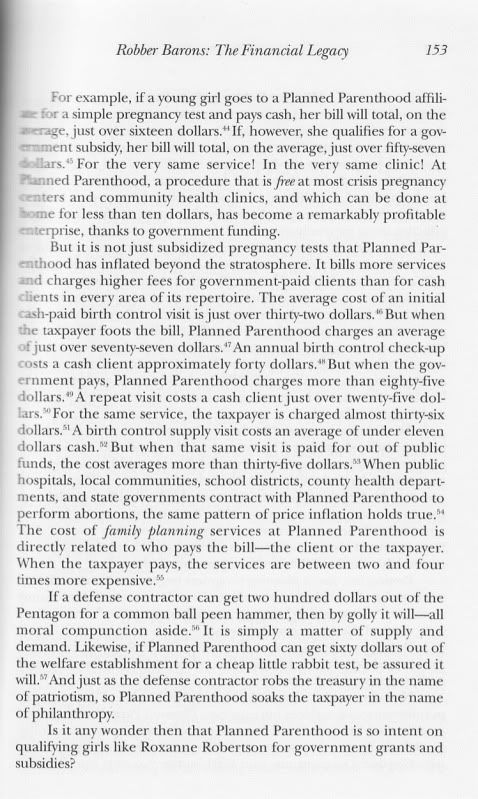Ecotopia: The Notebooks and Reports of William Weston by Ernest Callenbach (Banyan Tree Books, 1975)
Ecotopia is a harrowing masterpiece of terror by Ernest Callenbach, a visionary who dares to explore the societal, technological, and moral damage that would be wrought by rampant marijuana usage and “environmentally friendly” policies run amok. Designed as a cautionary tale that horrifies responsible conservatives, it is set in a dystopian future where the imaginary country of Ecotopia (composed of territory in the Pacific Northwest) has seceded from the United States and developed on its own for several decades. The chilling narrative, written in the form of a reporter’s news dispatches and personal journal entries, follows the protagonist as he examines their perverse ideals and struggles not to be corrupted by them.
Facts about the original secession of Ecotopia from the United States are in maddeningly short supply, as the narrator claims to have “no time” to sum up historical events and instead visits the country fully formed. Who fired the first shot? What heroes arose to lead both nations to stability? The lack of information makes it equally likely that Ecotopia was founded by breakdancing aliens, time-traveling mormons, pirates with herpes, or space cats from beyond the crab nebula. We know that it was started by some crazy broads1, and that’s about it—although there are also subtle hints brought to light during the narrator’s discussion of trade agreements that indicate it may be a Japanese plot2 to undermine our country.
It’s difficult to say whether the book is hurt by this omission. Some aspects of the alternate history are ridiculously improbable, like the way that the United States faces shortages of important products3 after losing the Ecotopian territory, as if they wouldn’t just invade Canada. Despite this, the book is still able to describe some of the devastating effects on our country’s most beloved landmarks. One of the most heart-wrenching scenes in the early pages is the author’s description of the cruel devastation that has fallen upon Reno. That’s right, Reno4. I’ll give you a moment to collect yourself.
As you’d expect, Ecotopia is a country full of tree-hugging5, stinky6 potheads living in a giant Renaissance Faire7 full of insufferably self-important jerks8 who like to pretend that they’re artists9. Basic amenities like microwave ovens10 and kitchenware11 have taken a giant leap backwards, and people stay warm by lighting their own farts12. However, they have made some advances, most notably in the field of baby-killing13 and other areas that can be inferred by textual clues. For example, their precious wood must either be cut by saws made from rock or (magic, plant-based14) plastic15 or super-concentrated jets of body odor, because Ecotopia doesn’t have any metals16. The narrator also raves about the Ecotopian telecommunications system linking the entire country, which could only have been developed from spit and feces.
Ecotopians themselves are a study in contradictions, only able to reconcile their cognitive dissonance in a haze of bong smoke and body odor. Although everything in Ecotopia shuts down at night17, the narrator is encouraged not to take medication for his insomnia so that he doesn’t miss anything18. While Ecotopians claim to detest heavy industry, they had no problem seizing and operating industrial properties to build their nationwide railroad19. And even though they’ve resorted to desperately scavenging for pre-secession metal20, they still make sure that piles of war debris21 are neatly stacked in a junkyard so that the narrator can find them later as evidence that the U.S. tried to restore sanity to Ecotpia by force.
It’s no surprise that Ecotopian weed is legalized—actively spread by the government22—and available to the point where factories are booze-fueled pot orgies23 and even a broken bicycle is an occasion to pass a spliff24. The only people smart enough to devise a way of overcoming the country’s marijuana addiction are themselves kept docile and befuddled by joints and tinker toys25. At the same time, the government has completely outlawed all drugs designed to treat mental illness26, but that’s okay because no one in Ecotopia suffers from schizophrenia, bipolar disorder, ADD, or reefer-induced paranoia27.
Similarly, no one in Ecotopia wants to wield political power or impose their will on others. This means that political meetings are giant affirmation sessions where everyone gets a chance to talk about their feelings28. Instead of political contests, Ecotopians indulge their taste for competitiveness by participating in “war games,” although this may just be a ruse that keeps the men distracted while the women fight over who gets to run the country and have babies29. There’s no point in having either drive or ambition in Ecotopia because accumulated wealth is next to worthless. If you can’t spend it yourself, it reverts back to the state when you die30.
Minorities in Ecotopia are self-segregated31, with blacks retreating to urban centers32 where they can enjoy their malt liquor and spinning rims33 in peace. Sadly, no one bothers to dream that peaceful racial co-existence is possible, because the destabilizing influence of Ecotopia on international politics has kept Apartheid alive and well in South Africa34. The narrator still hopes that some kind of resettlement can be worked out by shipping all the minorities elsewhere, looking to Israel as an example of how well it can work out35. Meanwhile, Ecotopia’s complete lack of morals has led to the repeal number of criminal statues36, making the country a safe haven for drug dealing rapists37.
Callenbach spends less time discussing the citizens of the remaining United States, probably because they have changed very little in the absence of society’s more dangerous, drug-crazed radical element. We know that they share our hatred of recycling38, and are afraid of the dark—or rather, the “crime panic” brought on by the dark, as the narrator notes when thinking about Ecotopia’s unlighted nighttime streets39. (The remaining) U.S. citizens are also happy living under a totalitarian regime40 where they aren’t trusted with anything more dangerous than a pointy stick41, for good reason42. They have also taken a more moderate stance on environmental policy, choosing not to let the outraged shrieks of a vocal minority tie the hands of the business that keep their economy afloat43.
Callenbach’s skillful writing combines his prophetic warnings of liberalism run amok with prescient descriptions of modern American society, but his talent really shows when discussing the narrator’s slide into madness. The foreshadowing begins early44, but the narrator is unaware of his gradual contamination45, possibly because of his focus on the sexual frustration 46 that he keeps writing about47 in his personal journal. By the time he begins to notice the change in his attitude48, it is too late49. He is dragged into the Ecotopian war games (and tricked into thinking that it is of his own free will) as a pretext to subject him to abhorrent medical procedures that make his Ecotopian conversion irreversible50. The book ends with a letter written to the narrator’s editor back in the United States, but not before the completely unhinged narrator contemplates a scheme to abduct and convert his own children.
CITATIONS
Ecotopia: The Notebooks and Reports of William Weston by Ernest Callenbach (Banyan Tree Books, 1975)
Note: The material in parentheses appearing inside the quotes is part of the original text. My alterations are noted in brackets.
1. “Secessionists filched uranium fuel from power plants for the nuclear mines they claimed to have set in New York and Washington. […] Those damned women, managed to [take over]” (p.2)
2. “Medium of exchange would have to be yen, but this could be concealed from our public.” (p.147)
3. “Many Americans still remember the terrible shortages of fruit, lettuce, wine, cotton, paper, lumber, and other western products” (p.3)
4. “Reno a sad shadow of its former goodtimes self” (p.4)
5. “Once I saw a quite ordinary-looking young man, not visibly drugged, lean against a large oak and mutter ‘Brother Tree!’” (p.58)
6. “Her sexual odors are powerful. I lost consciousness of the hard floor beneath.”(p.52)
7. “I even saw a juggler and magician team, working a crowd of children—it reminded me of some medieval movie.”(p.12)
8. “The Ecotopian at the train ticket window simply wouldn’t tolerate being spoken to in my usual way—he asked me what I thought he was, a ticket -dispensing machine?” (p.10)
9. “One young artist went so far as to refuse even to give me his name, lest it be bruited about the world through my columns. ‘We’re like the Balinese,’ he insisted. ‘We have no “art,” we just do everything as well as we can.’” (p.135)
10. “Microwave ovens being illegal in Ecotopia” (p.18)
11. “Cooking pots have no stick-free plastic lining, and are usually heavy iron.”(p.21)
12. “A companion unit, a large plastic tank, is buried outside, and connected by two flexible hoses. This, it turns out, is a septic tank, which not only digests sewage but produces methane gas in the process, which in turn operates the heater!” (p.124)
13. “Abortion costs have fallen further, and the number per year has stabilized. The use of contraceptive devices now seems universal. (They are all, incidentally, female-controlled; there is no “male pill” here.)” (p.63)
14. “plastics are entirely derived from living biological sources (plants)” (p.77)
15. “another line of plastics development led to a variety of durable materials, which were increasingly needed in place of metals.” (p.77)
16. “metals became deliberately scarce” (p.77)
17. “Most Ecotopian streets are pitch dark at night—evidently their power policies have caused them to curtail night lighting almost entirely” (p.15)
18. “In Ecotopia it can be fun to stay up all night, you know” (p.97)
19. “[Ecotopia] took temporary advantage of the Boeing facilities to help build the new national train system.”(p.8)
20. “formerly worthless heaps of junk skyrocketed in value, and were hauled up from creekbeds, pulled out of vacant lots, unearthed in abandoned barns, and of course salvaged from scrap yards.” (p.77-78)
21. “hundreds of wrecked U.S. Army helicopters”(p.120)
22. “One of the riskiest experiments of the new government was to deliberately make marijuana a common weed. Not only were legal prohibitions ended, but free top-quality seeds were distributed, in a campaign aimed at providing ‘do-it-yourself highs.’”(p.161)
23. “I have seen a whole section close down without notice; somebody will bring out beer or marijuana, and a party will ensue, right there amid the crates and machines.”(p.159)
24. “If a bicycle loses a chain or has a flat tire, its rider is soon surrounded by five people volunteering to help fix it. As they do during many casual social encounters, someone will bring out a marijuana cigarette and pass it around; people joke, touch each other, and take turns helping with the work” (p.160)
25. “The atmosphere of the research institutes, considering the great national responsibility they bear, is surprisingly playful. There is a great deal of sitting around with coffee or tea or marijuana, and many projects seem to make constant use of children’s construction-set materials” (p.128)
26. “The Ecotopian medical profession went through the pharmacopeia after Independence and ruthlessly eliminated many tranquillizers, energizers, sleep-inducers, and other drugs such as cold remedies. In fact, they now license no behavior-control drugs at all.”(p.96)
27. “It is claimed that mental illness has shown a decline since Independence, but it would be extremely difficult to evaluate such claims because of the drastically altered circumstances. I can confirm, however, that Ecotopian streets are not enlivened by the numerous and obvious crazies we are familiar with in our cities” (p.144)
28. “A meeting has no formal agenda [….] there are no Robert’s Rules of Order, no motions, no votes—instead, a gradual ventilation of feelings, some personal antagonisms worked through, and a gradual consensual focusing on what needs to be done. Once this consensus is achieved, people take pains to assuage the feelings of those members who have had to give ground in order to achieve the consensus” (p.85)
29. “It appears, by the way, that women never participate in the war games […] Ecotopians prefer to focus women’s competitiveness in other ways: through contests for political leadership, through organizing work—at which women are believed to excel—and through rivalry over men to father their children” (p.74-75)
30. “Laws formalizing the forfeiture of of property by the owners, plus confiscatory inheritance taxes, were legislated. (Aside from personal articles, no Ecotopian can now inherit any property at all!)” (p.91)
31. ”Black separatist parties grew up to dominate the ghettoes of Oakland and San Francisco—having been strangled by the white suburbs earlier, the black population now wanted to control their own territory. After a long and bitter political struggle, the black areas (and also Chinatown in San Francisco) were officially designated city-states within Ecotopia.” (p.98)
32. “often referred to as Soul City”(p.99)
33. “a few private cars are still mysteriously tolerated, and people cling to certain symbols of the old ways: there is a brisk trade in high-quality Scotch whisky and other imported luxury goods” (p.99)
34. “and this admission that the races cannot live in harmony is surely one of the most disheartening developments in all Ecotopia” (p.101)
35. “One scheme, which is currently being debated, would relocate the entire black population in a new territory […] The political and economic problems posed are monstrous, of course, but such things were carried out in Eastern Europe after World War II” (p.98)
36. “’Victimless’ crimes such as prostitution, gambling, and drug use are no longer on the books” (p.86)
37. “amnesties were declared for prisoners whose acts would no longer constitute crimes. A few guilty of ‘sex crimes’ and crimes like loitering, drunkenness, and vagrancy were also freed.” (p.99)
38. “It may seem unlikely to Americans, but I observed that during our trip my fellow travelers did without exception dispose of all metal, glass, or paper and plastic refuse in the appropriate refuse bin. That they did so without the embarrassment Americans would experience was my first introduction to the rigid practices of recycling and re-use upon which Ecotopians are said to pride themselves so fiercely.” (p.7)
39. “Can’t tell why this doesn’t lead to the crime panic it would bring among us.” (p.15)
40. “Our Bill of Rights was incorporated into the Ecotopian constitution, though in its original form which would seem dangerously sweeping and unqualified to most Americans today.” (p.85)
41. “Government’s control over population seems to be primitive compared to ours” (p.3)
42. “we had tried it [a militia system] in 1789 and couldn’t make it work. (And if we tried it now the units would probably turn into gangs of armed looters!)” (p.121)
43. “of course the Ecotopian situation has allowed their government to take actions that would be impossible under the checks and balances of our kind of democracy” (p.18)
44. “I just hope I can preserve my own sanity”(p.10)
45. “I’m experimenting, trying to imitate them”(p.30)
46. “breast-shaped green hills”(p.9)
47. “A little trouble with the maid last night, when she thought I was taking liberties […] seemed to be giving me the eye, yet wouldn’t play”(p.15-16)
48. “Realize that my attitudes toward the place have changed a lot in three weeks”(p.94)
49. “It seems likely that different ways of life always involve losses that balance the gains, and gains that balance the losses. Perhaps it is only that Ecotopians are happy, and miserable, in different ways from ourselves.”(p.144)
50. “‘Now you have a little Ecotopian blood in your veins!’ (because of the transfusion during my operation)” (p.140)













